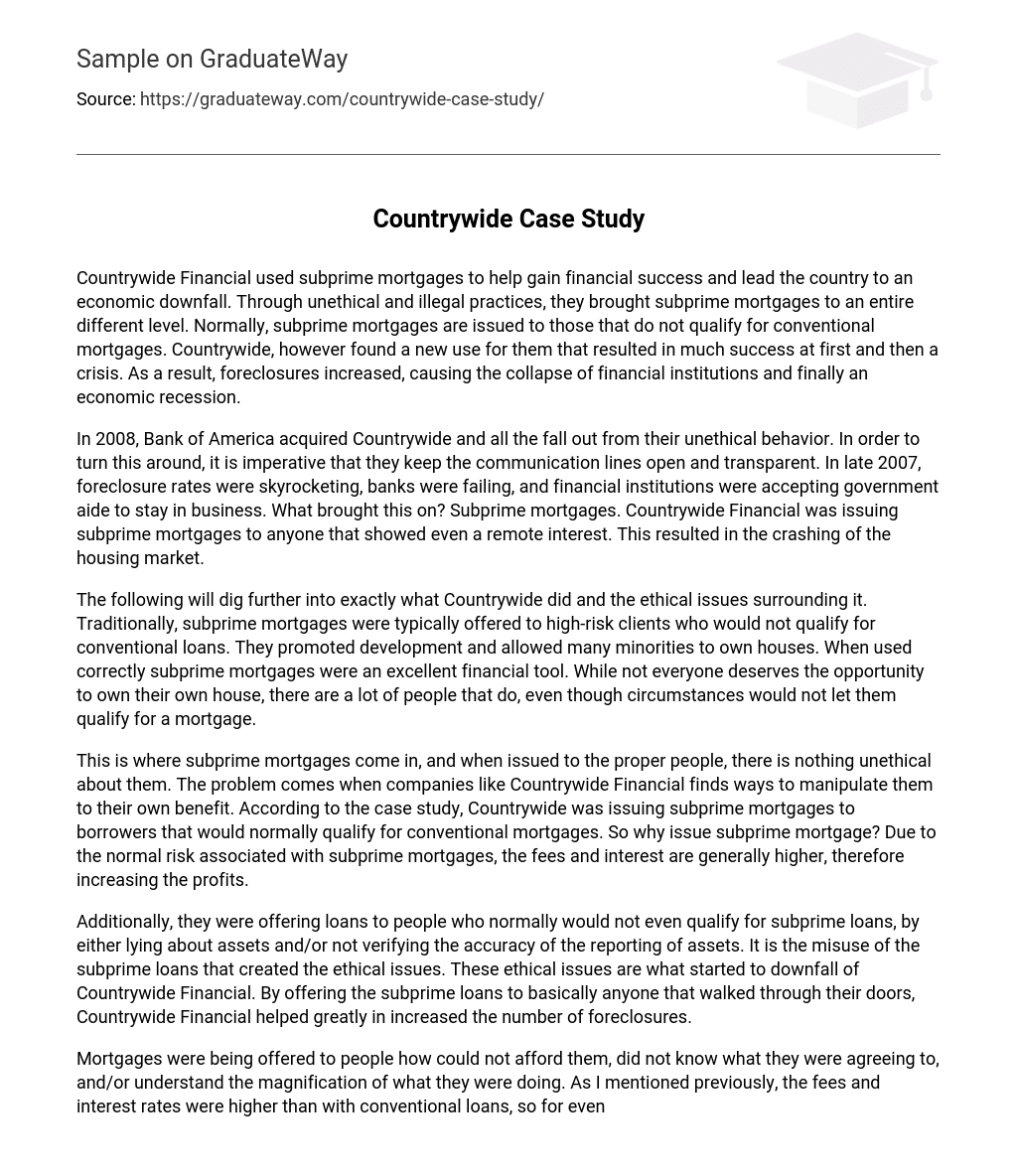Countrywide Financial utilized subprime mortgages to achieve financial success, but ultimately contributed to the country’s economic downfall through unethical and illegal practices. While subprime mortgages are typically issued to those who do not qualify for conventional mortgages, Countrywide took them to a new level. Initially, this brought great success, but it eventually led to a crisis. As a result of increased foreclosures, financial institutions collapsed and an economic recession ensued.
In 2008, Bank of America acquired Countrywide and assumed responsibility for the fallout from their unethical behavior. To turn this situation around, it is imperative that they keep communication lines open and transparent. In late 2007, foreclosure rates were skyrocketing, banks were failing, and financial institutions were accepting government aid to stay in business. What caused this? Subprime mortgages. Countrywide Financial issued subprime mortgages to anyone who showed even a remote interest, resulting in the crash of the housing market.
The following will delve deeper into what Countrywide did and the ethical issues surrounding it. Subprime mortgages were traditionally offered to high-risk clients who would not qualify for conventional loans. They promoted development and allowed many minorities to own houses. When used correctly, subprime mortgages were an excellent financial tool. While not everyone deserves the opportunity to own their own house, there are a lot of people who do, even though circumstances would not let them qualify for a mortgage.
This is where subprime mortgages come in. When issued to the proper people, there is nothing unethical about them. The problem arises when companies like Countrywide Financial find ways to manipulate them for their own benefit. According to the case study, Countrywide was issuing subprime mortgages to borrowers who would normally qualify for conventional mortgages. So why issue subprime mortgages? Due to the normal risk associated with subprime mortgages, fees and interest rates are generally higher, thereby increasing profits.
Moreover, Countrywide Financial offered loans to individuals who would not qualify for subprime loans. They achieved this by either falsifying assets or neglecting to check the accuracy of asset reports. The misuse of subprime loans caused ethical issues that led to the downfall of Countrywide Financial. By providing subprime loans to anyone who applied, Countrywide Financial contributed significantly to the rise in foreclosures.
Mortgages were being offered to people who could not afford them, did not understand what they were agreeing to, and/or did not comprehend the magnitude of their actions. As I previously mentioned, the fees and interest rates were higher than those of conventional loans. Even those who could qualify for conventional loans were forced to pay the higher rates, causing them to run out of money and ultimately foreclose on their properties.
When Bank of America acquired Countrywide Financial, the first thing they should have done was fire everyone involved without offering any packages. The next important thing is communication. They need to make sure everyone is aware that Bank of America had no intentions of following the practices of Countrywide Financial and was cooperating with all the investigations and ramifications that resulted from them. Additionally, they need to implement rules and regulations that ensure nothing like this happens again.
Finally, it is most important to have strong, ethical, and honest leaders to recover from this crisis. Countrywide took full advantage of an ethical subprime market and made unethical decisions which led to the downfall of the company. The housing market is finally starting to recover and the economy is slowly recovering from all the unethical business decisions made by Countrywide and others.





